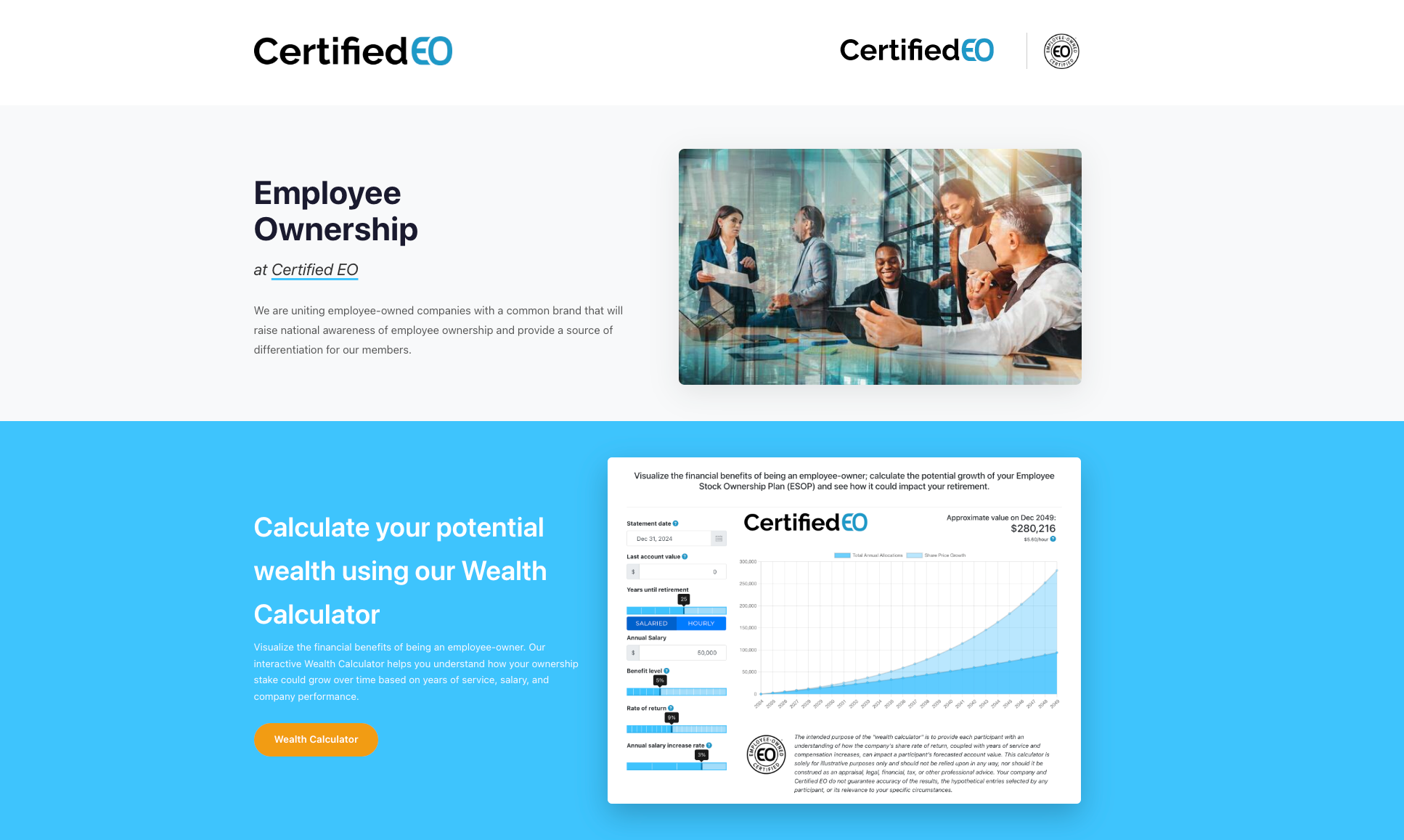
Since launching Certified Employee-Owned in 2017, I’ve spoken to over 1,000 employee-owned companies. These conversations are the highlight of my day. I love hearing stories about entrepreneurs starting companies and I'm always curious to learn how founders have come across employee ownership. Spending so much time talking to entrepreneurs and leaders in the employee ownership space has shown me a few interesting trends.
Most notably, the vast majority of companies I have spoken with did not start out as employee-owned, but transitioned after many years in business. I haven’t kept exact numbers, but I would estimate this is the case with over 95% of the companies I know. While there are as many reasons for conversion as there are founders, there are a few trends that stick out. Here are 10 reasons that stand out as to why business owners have made the transition to employee ownership, along with a paraphrased story for each one that captures the essence of the journey:
1. Keeping it in the family
“Starting this company was my dad’s greatest accomplishment and growing the business has been my life’s work. But none of my kids were interested in taking the reins. I know what can happen when a company is taken over by a strategic or private equity and I didn’t have the heart to do that to people I’ve known my entire life. Transitioning to 100% employee-owned was my way of keeping the company in the family.”
2. Giving our owners partial liquidity
“To me going 30% employee-owned was a no-brainer. I got some liquidity, and now my people have a direct stake in the action, so the company is doing even better. As a bonus I have a built in succession plan. I don’t have any plans to step back, but you never know what will happen and it’s great to have that option.”
3. Continuity through succession
“This company was her baby, she wasn't going to sell it. She really liked the idea of leaving the company in the hands of the employees, because the alternative was going the way of other companies that she had seen bought out and changed completely.”
4. Staying an anchor in our community
“Our founder was deeply concerned with what would happen to the local economy. He knew that if he sold to a strategic buyer, they would move the headquarters and maybe even the factory. We’re the biggest employer in the area so that would have devastated the town. By transitioning to EO our founder kept us local and kept the town alive.”
5. Start-up business sharing equity
“A lot of start-ups share equity with talented employees in exchange for under-market wages, but my vision for sharing equity in the company was different. I wanted all my dedicated employees to have skin in the game from the beginning. The set formulas for sharing equity with only early employees didn’t work for me.”
6. Aligning employees at a time of growth
“After years of start-up hustle, we were finally poised to take our company to the next level, and employees were going to be critical to our growth. We wanted to align the interests of owners and employees by giving employees a stake and a better understanding of what makes our company tick.”
7. Finding alternatives to private equity
“Private equity started knocking at our door and it made us think critically about the future of our company. We believe in our mission, our people, and the services we provide and are not willing to compromise those to get the highest dollar. Some of our shareholders were pressuring us for liquidity, and we needed to figure out how to provide that without overburdening the company with debt.”
8. Mission-driven at our core
“We have been mission-first since day one. I started the business to help us transition to a sustainable future. Growing the company and making money has always been an outcome of our success, not a goal. I transitioned us to employee-owned to lock that mission-focus into our DNA. I want everyone here to have a stake in our future and to feel as bought-in as I feel as the founder.”
9. Feeling alone at the top
“I did not expect to become a solo entrepreneur running a company by myself. I always wanted to do this as a team. I don’t have a co-founder anymore, and I want everyone to be more bought in and engaged as co-owners of this business.”
10. Democracy at work
“We wanted to be a worker cooperative from the start. It is the only corporate structure that aligns with our values - that each worker should have equal say in the governance of the company. We are in this together and that should be reflected in every aspect of our structure and culture.”
Are you a business owner looking to learn more about employee ownership? A great place to start is our overview.



